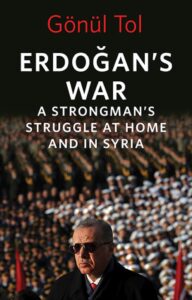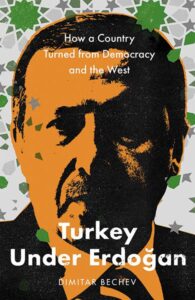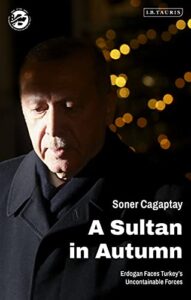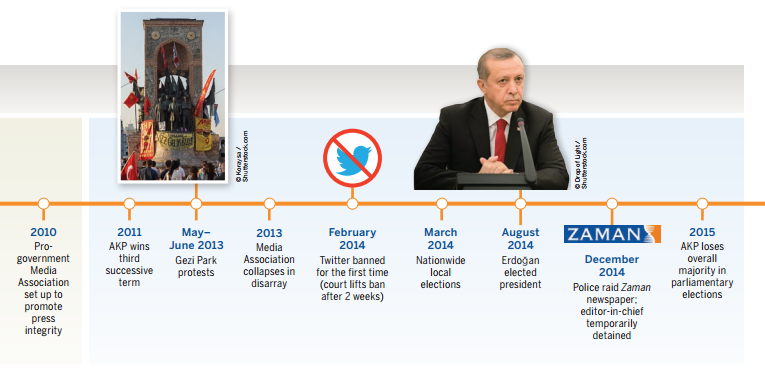President Recep Tayyip Erdogan beat back the greatest political challenge of his career on Sunday, securing victory in a presidential runoff that granted five more years to a mercurial leader who has vexed his Western allies while tightening his grip on the Turkish state. ….Mr. Erdogan’s critics worry that he will find new ways to weaken democracy from within, The Times reports.
“The judiciary is controlled by the state, Parliament is controlled by the state and the executive is controlled by Erdogan,” said Ilhan Uzgel, a former professor of international relations at Ankara University who was fired by presidential decree. “That means there is no separation of powers, which is the ABCs of a democratic society.”
 Mr. Erdogan operates on the understanding that “the world has entered the stage where Western predominance is no longer a given,” said Galip Dalay, a Turkey analyst at Chatham House. That view has led regional powers like Turkey to benefit from ties with the West even while engaging with American rivals like Russia and China. The idea is that “Turkey is better served by engaging in a geopolitical balance between them,” Mr. Dalay added.
Mr. Erdogan operates on the understanding that “the world has entered the stage where Western predominance is no longer a given,” said Galip Dalay, a Turkey analyst at Chatham House. That view has led regional powers like Turkey to benefit from ties with the West even while engaging with American rivals like Russia and China. The idea is that “Turkey is better served by engaging in a geopolitical balance between them,” Mr. Dalay added.
Erdogan has “managed to split Turkey … into two blocs: for or against Erdogan,” Emre Peker, an analyst at the Eurasia Group consultancy, told the Financial Times. “Even with Turkey going through its worst economic period since the 2001 financial crisis, Erdogan can still win elections on identity politics.”
Erdoğan is not irrational, which means he also understands something fundamental about Turkey’s NATO membership: it’s part of what gives him his clout, VOX reports. “Turkey’s power very much stems from the fact that it’s in NATO,” said Merve Tahiroğlu, Turkey program director at the Project on Middle East Democracy – POMED, a partner of the National Endowment for Democracy (NED).
What does Erdogan’s win means for the West—and the world? He may use his victory to try to make a more lasting change in Turkey’s international posture. Erdogan’s vision “is entirely about making Turkey great again,” said POMED’s Tahiroglu.
 Analysts expect the polarizing rhetoric to be sustained as Erdogan faces a complex set of challenges at home, including a cost-of-living crisis and significant public anger over mismanagement of the economy, The Post’s Ishaan Tharoor reports.
Analysts expect the polarizing rhetoric to be sustained as Erdogan faces a complex set of challenges at home, including a cost-of-living crisis and significant public anger over mismanagement of the economy, The Post’s Ishaan Tharoor reports.
But experts fear the toxic effects of what the president has harnessed and unleashed. “Erdogan put together a winning coalition based on fault lines: Turkish versus Kurdish nationalism, secular-urban versus the Sunni majority. This is a winning formula,” Berk Esen, a professor of political science at Istanbul’s Sabanci University, told my colleague Kareem Fahim. “This is not a better formula for Turkey.”
Erdogan may now “eradicate whatever is left of the independent judiciary, free press and critical academia,” according to the Cato Institute’s Mustafa Akyol. “He has also promised a whole new constitution, which could realize many of the dreams of the religious right. Suggestions by pro-Erdogan partisans include abolishing the constitutional court, putting even more religion into public education, curbing women’s rights and banning ‘heretical’ (liberal) interpretations of Islam.”
 “He delivered his most aggressive balcony speech because that is how autocrats cling to power against unfavorable odds,” tweeted Gonul Tol, author of Erdogan’s War (above), a Turkey expert at the Middle East Institute think tank in Washington. “They stoke fear and frame elections as a war for survival. That is how they prevent defections. That is how they can still muster majorities even when they fail to deliver.”
“He delivered his most aggressive balcony speech because that is how autocrats cling to power against unfavorable odds,” tweeted Gonul Tol, author of Erdogan’s War (above), a Turkey expert at the Middle East Institute think tank in Washington. “They stoke fear and frame elections as a war for survival. That is how they prevent defections. That is how they can still muster majorities even when they fail to deliver.”
Erdogan’s election victory means that he will continue to favor Moscow internationally, keeping strong economic ties with Russia and providing Putin and his oligarchs with vital ways to bypass sanctions, adds Soner Cagaptay, Director of the Turkish Research Program at the Washington Institute and the author of The New Sultan: Erdogan and the Crisis of Modern Turkey. Putin exploited Erdogan’s key insecurity in 2016—Erdogan still feels that his hold on power is tenuous, even if he has become Turkey’s new sultan—and to this day, the Kremlin continues to benefit from it, he writes for Foreign Affairs:
The outcome of the May elections suggests that Turkey has now shifted closer to a Eurasian autocracy than an illiberal European democracy. … Just as Putin had acquired sweeping executive powers in Russia, Erdogan had now become Turkey’s most powerful elected leader since the country’s first free and fair vote in 1950 — in effect a new Sultan.








